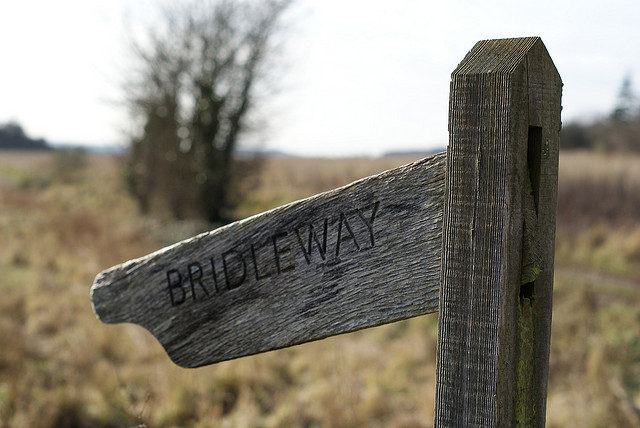A ditch in Cheshire has become the centre of a dispute that has cost both parties more than a combined £500,000 as an alpaca and wallaby-breeding pair face off against a high-powered business couple.
Bemused by the case, the Lord Justice Bean remarked that the ditch was "a patch of land a few feet either way" and that he imagined "the disputed right of way is worth rather less" than the vast amount of money spent on pursuing the case.

Image by David Spender
The case has thus far gone the Gilks' way, who are seeking to use the bridle path by the ditch to access their property. The issue according to the Hodgsons hinges on whether or not the ditch belongs to the Gilks' property or not, while the Gilks' barrister insists that even if the ditch did not belong to the Gilks, the long use of the road to access the property established legitimate vehicular right of way.
The Hodgsons meanwhile insist that the use of the road is illegitimate and, in addition, bothers their alpacas.
Mountains Out Of Molehills
While this may seem inconsequential, hard-fought cases over minor issues like this can sometimes become influential in later planning decisions.
Although the origins of the debate may be personal or even petty, the results can affect every future legal planning case, creating precedents and loopholes that sharp-eyed planning lawyers can easily exploit.
There is also historical value to cases like this. There are accounts of unlawful deconstruction of buildings as far back as the 1300s that tell us something about what life was like, and especially the minutiae of life, even such a long time ago.
The Lord Justices involved in the case may not have been impressed, asking "What is so special about it?" and remarking repeatedly on the strip of land's small size. To those involved, however, these cases can be a matter of great pride, and mirroring the great work of fiction Bleak House seemingly minor legal cases can have immense emotional significance.
Keep Cases Small
Results should usually take a much shorter span of time and much less expense than this case took up. In some cases there can be irreconcilable differences between two parties, but early and frequent communication can help ameliorate this - and in the case of legal action looking inevitable, it pays to move first and move fast.
Either way, if you are planning a development, it pays real money to communicate, negotiate and investigate first - building can wait for now. We can offer our expertise in legal matters at this stage, and hopefully it will never come to a full-blown court case.
On the other hand, if you have already built something without planning permission, and it has been challenged, it's probably time to talk to your planning lawyer.
Feel free to get in touch on Twitter @planning_lawyer if you want to talk about this article, or contact us directly using our contact form to discuss your planning law situation.
